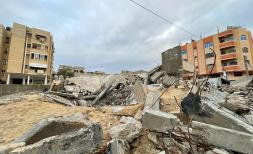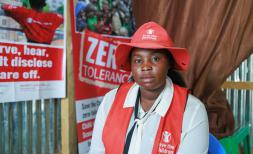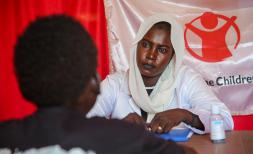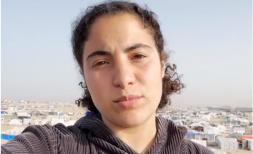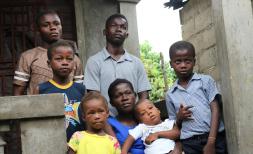KAMAL’S STORY: WE WANT TO LIVE IN PEACE
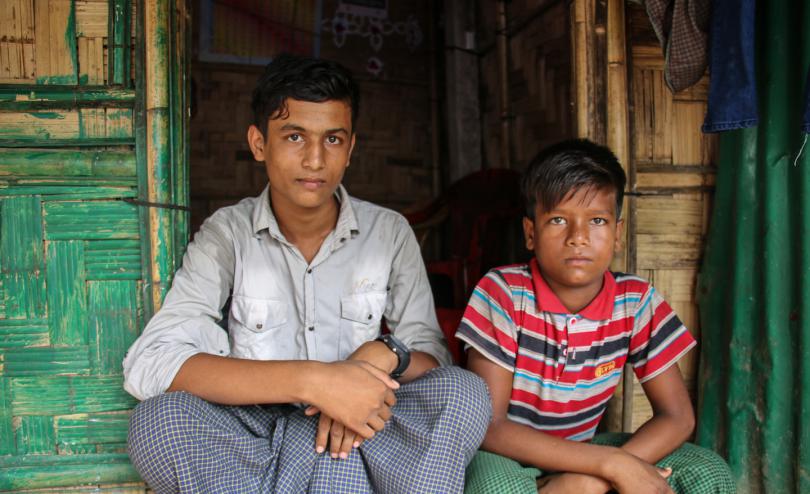
Three years ago, Kamal’s parents and five of his siblings were killed as violence erupted in Myanmar. Kamal* was badly hit on his head with a weapon. He lost a lot of blood and now suffers from fainting and dizziness.
August 2020 marks three years since 700,000 Rohingya fled Myanmar in the wake of brutal violence which the UN has described as a “textbook example of ethnic cleansing.”
Kamal is now 15 years old and lives in Cox’s Bazar, Bangladesh - the world’s largest refugee camp - with his grandmother, Gulsan*, grandfather, Rashid* and his brother, Abdul* (12), who has problems with his speech. Half a million Rohingya refugee children are living in these camps with limited access to education and healthcare, no freedom of movement and almost entirely dependent on aid.
We spoke to Kamal about his life in Cox’s Bazar
“In the camp I don’t feel as cheerful as I used to feel back in Myanmar. All my friends from my neighbourhood are dead. And my brothers and friends – they’re all dead.
"We don’t have anything right now to feel happy. If my parents and my siblings were alive, I would feel delighted, but now I don’t have anything.
"After I’m done with my prayers, I just sit around, I don’t have anything to do. I used to play in the playground but now it’s closed. So, I just sit around all day alone, in the tea stall.
"I don’t have any ambitions or plans. We are not permanent (residents) here. If I live in a country permanently then I’ll see what’s available then. But now I’m between Burma and Bangladesh, so I can’t do anything. I don’t feel any happiness in my heart now.
"In our rations, we get rice and other things, but we don’t get any fish or meat. So, we sell some lentils to buy fish and meat. But sometimes we can’t get to eat these things when we are craving it.
"Now our brothers (Save the Children staff) come here to look after us, and my brother also comes here.
"We all understand him (his brother Abdul) by using signs and signals. We understand him. When he was very young, he could talk. When he was three years old, he started to speak but now it’s gone.
"If we live here then we want to live in peace, we don’t want any trouble.
"I want to return there (to Myanmar) but if we don’t have any freedom there then we can’t go back. I miss Burma.”
They shot and killed my family members"
We also spoke to Kamal's grandmother, Gulsan, who said: "We were hiding in the bushes watching everything. We were watching everything, how they were killed. Everyone was screaming.
"I came here (Cox’s Bazar) one day before Qurbani Eid. I faced a lot of difficulties coming here. It was pouring down and we had to cross many things. My husband and my grandson’s wife carried me here as I fainted after seeing my daughter killed.

Kamal* lives with his brother, Abdul*, his grandmother, Gulsan* and grandfather Rashid*, in the Rohingya refugee camps in Cox's Bazar, Bangladesh.
"When we came here we didn’t find anything to eat. We were hungry and we couldn’t sleep. We couldn’t eat anything. Even when we reached Bangladesh, we couldn’t find any food. Then my husband bought some rice so that we could eat.
"They (the children) couldn’t study; they couldn’t say their prayers because of the Burmese. They blocked us from everywhere. Not a single child could study. They even locked all the mosques. We couldn’t do anything.
“Save the Children provided us with an umbrella, mats, beds, mosquito net, buckets and snacks. They came here to tell us to send our children to the playground, and after that we sent them there. They play with everyone. They spend their time playing with balls. They play so they don’t get physically or mentally unwell. I feel very peace when they go to the playground to play.”
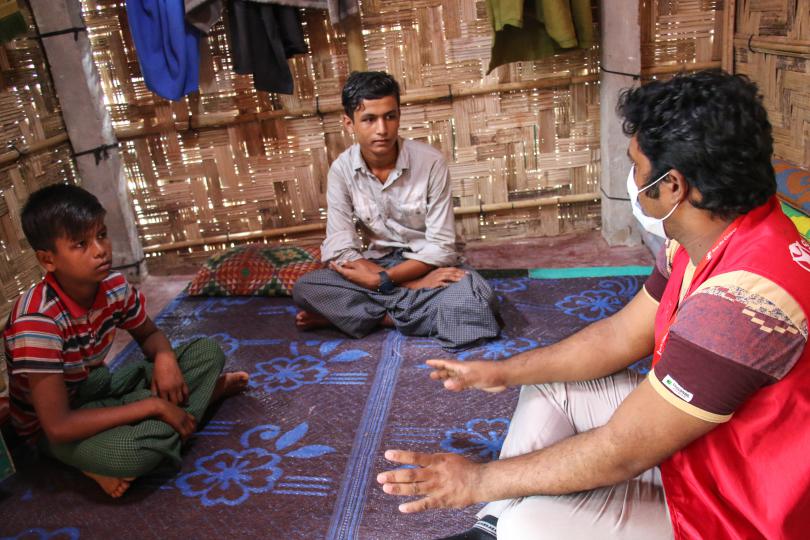
Rohingya refugees Kamal* and Abdul* speak with a Save the Children staff member.
The world must not forget the plight of Rohingya refugee children. They want what every child does: a home, an education, a safe place to play and grow.
Save the Children has more than 1,300 staff and volunteers supporting its Rohingya response programmes in child protection, education, health and nutrition, water, sanitation and hygiene services, as well as distribution of shelter and food items.
